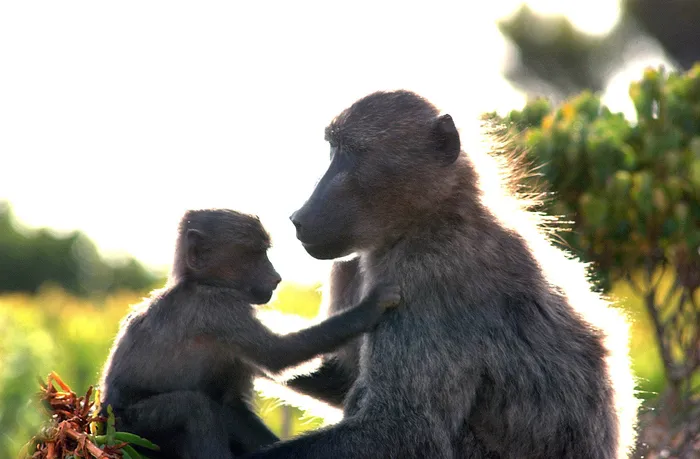Finding a way forward for baboon management

A public meeting was held last week to discuss long-term solutions for managing the growing baboon population on the Cape Peninsula.
A trust charged with building, maintaining and monitoring an electric fence is one of the ideas being touted as a solution to minimising conflict between baboons and humans.
Dr Dave Gaynor, a research fellow at the University of Pretoria’s Mammal Research Institute, has presented the idea of setting up such a trust. He was part of an online public meeting last week - one of several the City is holding for the public to comment on a new strategy to manage the Cape Peninsula’s growing baboon population.
This follows the City’s decision to abandon its controversial urban baboon management programme when its contract with NCC Environmental Services comes to an end in June next year (“Talks explore future of baboon management”, Bulletin, June 6).
The outcome of the meetings will be included in a draft baboon-management plan.
A Cape Peninsula baboon management task team, made up of SANParks, CapeNature, and the City, is aiming to have a new management plan in place by the end of June next year.
The City’s biodiversity management department says that the baboon population is growing while the primates’ natural habitat is shrinking.
“If you look at the size of the troops, Tokai currently has 126 baboons, Zwaanswyk is a little bit smaller,” said Dr Dorothy Breed, a veterinarian and wildlife specialist for the City.
Some of the troops, including the one in Constantia, had split up as baboons moved into different areas looking for more resources, she said, noting that this led to an increase in urban excursions and urban-related injuries.
During the meeting, some residents described feeling like they were being held at ransom by the baboons.
Marius Rezelman, the chairman of the New Court estate in Tokai, said, “Our problem is the habitual raiding baboons are a daily occurrence. In a security estate like ours, everyone has windows and doors opened. Most of the people here are elderly and have grandchildren visiting them. We have grandchildren who are receiving counselling at the moment after instances where they’re having breakfast and the next moment there is a baboon sitting on the table with them.”
The City says a tender for baboon-proof bins has been advertised, but Sheila Camerer, chairwoman of the Constantia Ratepayers’ and Residents’ Association, said, “I cannot understand why secure bins are only being put out to tender now. Is there any possibility of fast forwarding the procurement and distribution of secure bins because it is getting beyond a joke in Constantia?”
Dale Williams, a Constantia Hills resident, asked what plans the City had to limit the growth of the baboon population, while Baboon Matters trustee Dr Elisa Galgut, said that whether the plan relied on euthanasia or contraception such a decision would have a big impact on both humans and animals and required the input of someone trained in ethics or bioethics.
John Green, of the Zwaanswyk Residents’ Association, said the area had been plagued by baboons for close to a decade prior to the establishment of a special rating area (SRA) in 2010 and the building of a 2.8 km fence around 150 houses in Zwaanswyk Road.
“We’ve spent probably upwards of R200 000 alone in the SRA just looking after our fence and properly maintaining it. The only area baboons can enter is up Zwaanswyk Road,” he said.
It is precisely this type of fencing gap that Dr Gaynor’s plan, which he calls the Common Good Mountain Fence Trust, wants to prevent. He said 74% of the mountain boundary was already fenced, and only a further 3.5km was needed to complete a 13.5km fence.
“It is much more effective for everyone to have a continuous mountain fence than one with gaps,” he said.
He estimated it would cost R433 000 for each kilometre of fence if done through the trust. That figure could increase to between R1million and R1.5 million if independent contractors were brought in.
The trust would consist of a director, an operations manager and a team of 12 workers, and residents would get ongoing maintenance and monitoring.
Eddie Andrews, mayoral committee member for spatial planning and environment, said the City felt a hybrid approach was needed. And for the south of Constantia Nek, Tokai and Zwaanswyk that included the continuation of baboon rangers, the implementation of an early warning system and strategic fencing like that suggested by Dr Gaynor.
The next meeting will be held on Thursday September 22, from 6pm to 7.30pm. Registration is required with links available on the City’s website.